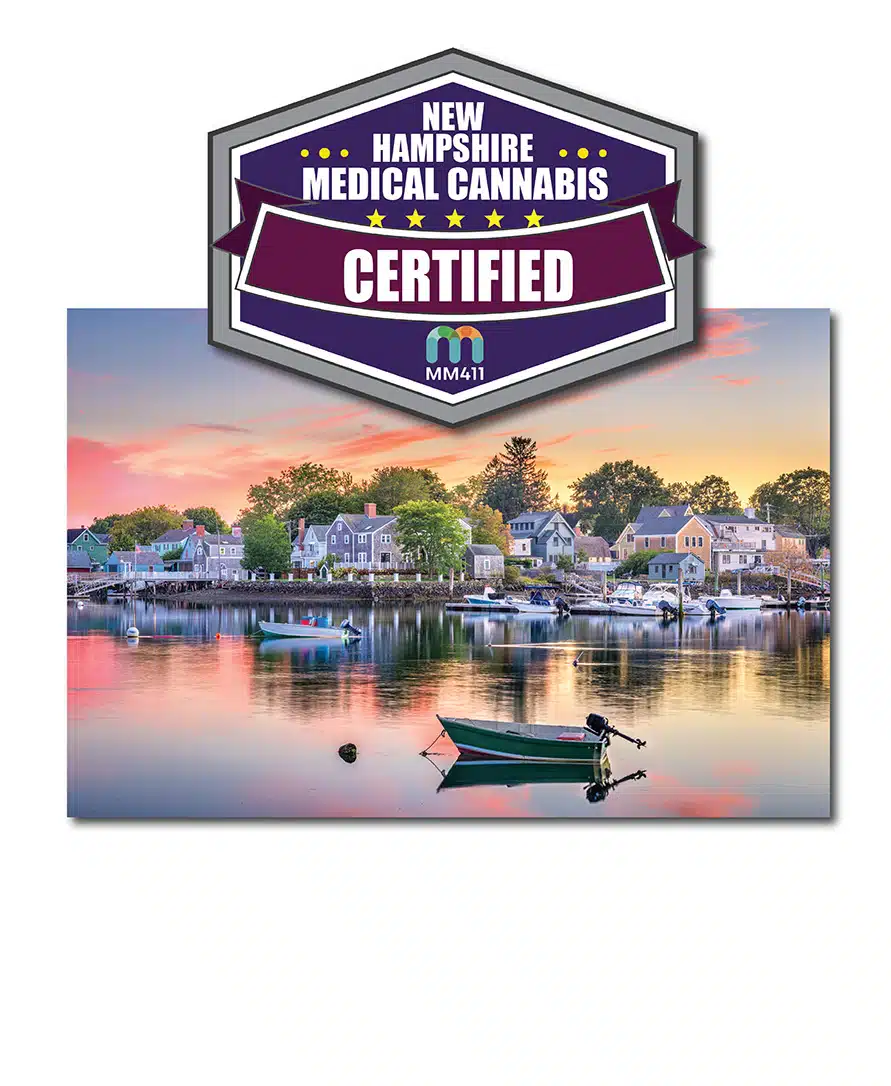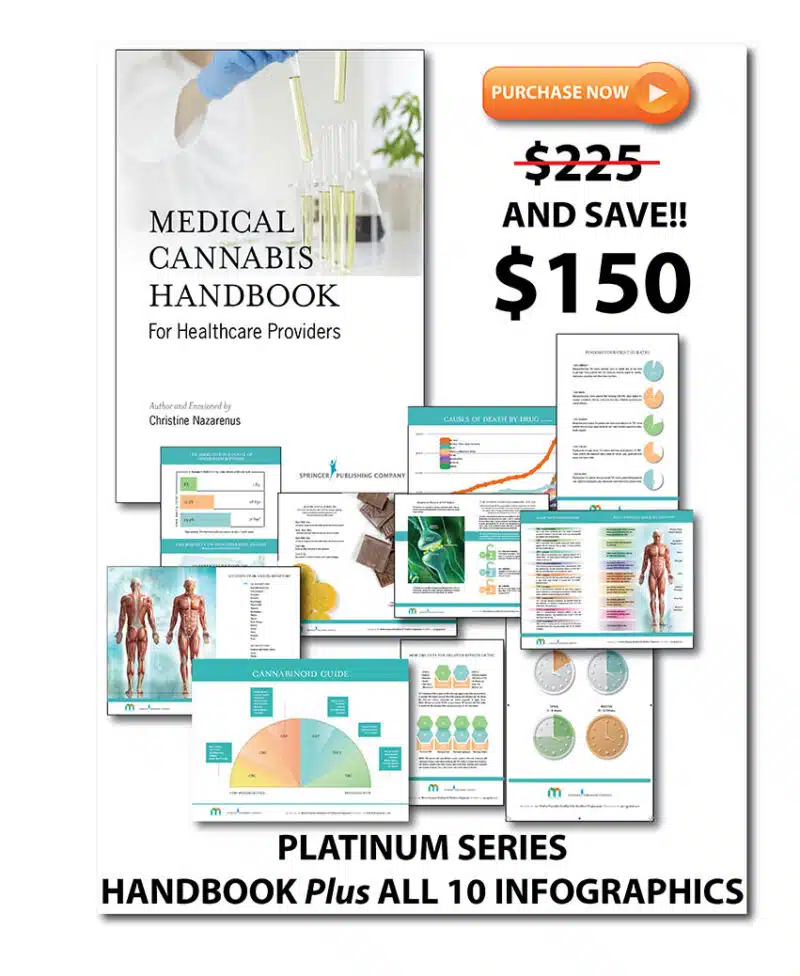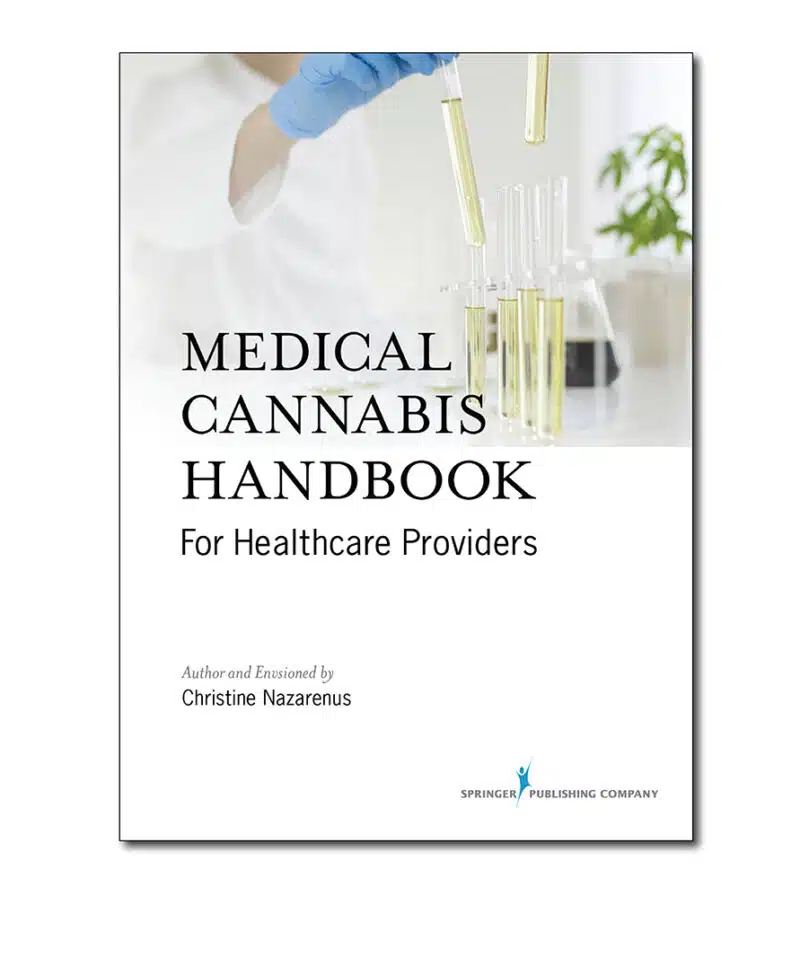Does your state have legal cannabis?
Yes! Therapeutic Cannabis Program (TCP) Gov. Hassan signed New Hampshire’s medical cannabis bill, HB 573, into law on July 23, 2013. Beginning in 2016, patients were able to access cannabis from regulated, licensed alternative treatment centers (ATCs). Since the initial law’s passage, some improvements have been made, most notably by expanding the qualifying conditions to include chronic pain and PTSD. However, patients are still not allowed to cultivate cannabis at home.
Where to start?
Our certification programs span from Washington state to New York, and every legal state in between. The Medical Cannabis Foundational Certification will allow you to learn the core fundamentals of cannabis science and explore cannabis industry knowledge, so you are prepared to be a certified hire in your Montana. Our courses and certifications will provide you with knowledge and skillset to enter the cannabis job market competitively, right out of the gate.
Get certified by the best cannabis education company, Medical Marijuana 411 (MM411 Inc).
What does the Medical Cannabis Foundational Certification Include?
The Medical Cannabis Foundational Certification will allow you to learn the core fundamentals of cannabis science and explore cannabis industry knowledge, so you are prepared to be a certified in your state. Our courses and certifications will provide you with knowledge and skillset to enter the cannabis job market competitively, right out of the gate. This certification is not just for medical professionals, but for budtenders who want to enroll in the most robust cannabis certification course as your educational foundation.
As you expand your cannabis educational pursuits, make sure to check out additional courses such as our Continuing Courses or Advanced CBD Certification. Medical Marijuana 411 will be adding new expert level certifications monthly. Subscribe to our e-news to stay informed!
The Medical Cannabis Foundational Course is an online course that covers a series of 12 modules designed to teach healthcare and industry professionals the fundamental topics of cannabis and includes a specific module on the legal framework, forms and other pertinent information regarding the New Hampshire Therapeutic Cannabis Program (TCP).
In addition to New Hampshire Therapeutic Cannabis Program (TCP) regulations, you will learn about the federal legal framework of working with medical marijuana patients, the basics of the cannabis plant, the Endocannabinoid System, and how cannabinoid receptors work with our bodies. Additional modules will cover important topics like: how to medicate, inhalation versus ingestion, contraindications, drug-on-drug interactions, and recommended rations of specific illnesses.
Did you know that Healthcare Professionals are covered by Federal Law to talk to patients about Medical Marijuana even in non-legal states by an existing statute? That’s the wealth of information contained in MM411, Inc. certifications.
This certification also includes: video testimonials from scientists and medical experts, downloadable infographics, additional visuals to support the written content followed by an exam to receive your certificate. Any individual wanting to learn more about the science of cannabis will find the course valuable. And we guarantee your complete satisfaction or your money back. To date, MM411, Inc has never had a return. Enrollees love our certifications and we stand by our courses with a 100% guarantee.
If you are a dispensary, medical group, or company and interested in multi-seat pricing or a customized, white label course, please call 844.411.0500.
Legal Assessment
New Hampshire – Therapeutic Cannabis Program (TCP) Legal Overview
The Therapeutic Cannabis Program (TCP) maintains a confidential registry of qualifying patients, their caregivers, and their certifying medical providers. The program processes applications and issues cannabis registry ID cards to eligible patients and caregivers. The registry ID cards allow cardholders to purchase therapeutic cannabis from one of the state’s licensed Alternative Treatment Centers (ATCs). The ATCs are independently operated, not-for-profit entities responsible for the cultivation, production, and dispensing of therapeutic cannabis to qualifying patients in New Hampshire. The program regulates the ATCs for safety, quality, and compliance with all applicable laws and regulations.
November 2022
Therapeutic Cannabis Program Rulemaking to Implement Recent Statutory Changes
He-C 401 (TCP Registry Rules) is being updated to implement recent law changes from 2021 and 2022. These changes include:
- Adding qualifying medical conditions: insomnia, autism spectrum disorder, and opioid use disorder;
- Removing requirements for designated caregivers to undergo a state and federal criminal background check;
- Adding requirements for certifying medical providers to provide counseling to women of child-bearing age about the risks of cannabis use during pregnancy and while breastfeeding and to adolescents about the risks of cannabis use in adolescence;
- Adding allowance for providers to issue a written certification for a duration of up to 3 years, and adding requirements for extending a written certification for up to 3 years if previously issued for a shorter duration; and
- Removing requirements related to patients designating one alternative treatment center (ATC) at a time.
See the Rulemaking Notice and Initial Proposal for detailed public hearing and comment information.
- Public Hearing: Tuesday, November 22, 2022, 12:00pm, at DHHS, Brown Building, Auditorium, 129 Pleasant Street, Concord, NH 03301
- Public Comment Period Ends: Thursday, December 1, 2022
Source: New Hampshire The Therapeutic Cannabis Program
Qualifying Conditions (Includes Updates November 2022)
The list of qualifying medical conditions for the therapeutic use of cannabis is established in NH law at RSA 126-X:1, IX. A patient must be diagnosed with a stand-alone medical condition OR a combination of a qualifying diagnosis and a qualifying symptom.
Stand-Alone Medical Conditions
- Autism spectrum disorder (age 21 and older)
- Autism spectrum disorder (under age 21) (requires a consultation with a certified provider of child and/or adolescent psychiatry, developmental pediatrics, or pediatric neurology, who (1) confirms that the autism spectrum disorder has not responded to previously prescribed medication or that other treatment options produced serious side effects and (2) supports certification for the use of therapeutic cannabis)
- Moderate or severe post-traumatic stress disorder
- Moderate to severe chronic pain
- Severe pain that has not responded to previously prescribed medication or surgical measures or for which other treatment options produced serious side effects
Combination of a Qualifying Diagnosis AND a Qualifying Symptom
Qualifying Diagnoses
- Acquired immune deficiency syndrome
- Alzheimer’s disease
- Amyotrophic lateral sclerosis
- Cancer
- Chronic pancreatitis
- Crohn’s disease
- Ehlers-Danlos syndrome
- Epilepsy
- Glaucoma
- Hepatitis C
- Lupus
- Multiple sclerosis
- Muscular dystrophy
- One or more injuries or conditions that has resulted in one or more qualifying symptoms
- Parkinson’s disease
- Positive status for human immunodeficiency virus
- Spinal cord injury or disease
- Traumatic brain injury
- Ulcerative colitis
Qualifying Symptoms
- Agitation of Alzheimer’s disease
- Cachexia
- Chemotherapy-induced anorexia
- Constant or severe nausea
- Elevated intraocular pressure
- Moderate to severe insomnia
- Moderate to severe vomiting
- Seizures
- Severe pain that has not responded to previously prescribed medication or surgical measures or for which other treatment options produced serious side effects
- Severe, persistent muscle spasms
- Wasting syndrome
Course Syllabus
Module 1 – US Legal
- U.S. Controlled Substances Act
- Drug Schedule – Cannabis Schedule I
- Drug Schedule (Graphic)
- COVID Cannabis Guidelines
- Economic Impact
- Cannabis genus of flowering plants in the family Cannabaceae
- Legal differentiation between hemp and marijuana distinguished by their respective concentrations of the cannabinoid delta-9 tetrahydrocannabinol (THC)
- 2018 Farm Bill
- Impact on hemp classification
- SAFE Banking Act
- U.S. Pat. No. 6,630,507
- Trademarks
- Ogden Memo
- Cole Memo
- Wilkenson Memo
- 2018 Sessions Memorandum
- Rohrabacher–Blumenauer Amendment
- Joyce Amendment
- Conant v. Walters
- What Medical Professionals Can Legally Provide To Their Patients (Graphic)
- Cannabis and Cannabis-Derived Compounds: Quality Considerations for Clinical Research
- Guidance for Industry – Downloadable PDf
- Cannabis and Cannabis-Derived Compounds: Quality Considerations for Clinical Research
- Guidance for Industry – Video Explainer
- Taxes
- Affirmative Defense
- Bankruptcy Protection
- Employment Law
- Access to Banking – Financial Crimes Enforcement Network FinCEN Guidance
- Copyright and Registration
Module 2 – New Hampshire Therapeutic Cannabis Program (TCP) Legal
Module 3 – History
- Early History of Cannabis Use
- Cannabis in the West
- U.S. Prohibition History
- The Medical Implications of U.S. Prohibition
- Medical Cannabis Today
- Hemp vs Cannabis
- Brief Chronology of History in Spain and throughout Europe
Module 4 – The Discovery of the Endocannabinoid System
- Introduction of the Endocannabinoid System (ECS)
- Largest Receptor System
- ECS – Video Explainer
- Newly Discovered
- Chemical Bridge to All Bodily Functions
- Homeostasis
- Healthy Body = Healthy ECS
- ECS – Downloadable Graphic
- Dr Jake Felice – What is the Endocannabinoid System (ECS)? Video Interview
- Largest Neurotransmitter System of all “the body’s supercomputer”
- 1964 discovery of THC and CBD – Raphael Mechoulam, Ph.D and Yehiel Gaoni, Ph.D
- The Scientist – video regarding Raphael Mechoulam, Ph.D discoveries
- Allyn Howlett, Ph.D – Isolating THC in the brain – 1998
- No cannabinoid receptors in the cardiac and respiratory centers of the brainstem therefore no overdose from cannabis
- Raphael Mechoulam, Ph.D found in 1992, brain chemical that mirrors the effects of THC
- Two brain chemicals – anandamide, Sanskrit word “ananda” brain chemical that mimics THC and CBD, 2-Arachidonoylglycerol, which they named 2-AG.
- Endogenous Molecules “endocannabinoids”.
- CB1 receptors, and CB2 receptors
- Cannabinoids and how they attach to receptors
- CB1 receptors
- Located in the central nervous system and affect many brain functions including movement, anxiety, stress, fear, pain, appetite, reward, and motor control
- CB2 receptors
- CB2 receptors control the release of cytokines, immuno-regulatory proteins, that are linked to inflammation during illness or after injury.
- Retrograde Inhibition
- Lack of education on the Endocannabinoid System
- Clinical Studies
- At a Glance – Downloadable Infographic
- Homeostatsis
- Human Thriving Behavior and the ECS
Module 5 – One Plant, One Complex Chemical Factory
- Minor Cannabinoids: CBG CBC CBN THCV
- Terpenes
- The Entourage Effect & Tolerance / ECS Down Regulation
- Botanical vs. Single Molecule Compounds & Cannabinoids and Opioids
Module 6 – Getting Cannabinoids into the Bloodstream
- Inhalation: Smoking vs. Vaporization
- In the News Discussions
- Cannabis Flower vs. Concentrate
- Different Concentrate Consistencies
- Extraction Methods
- Winterization
- Concentrates Using Solvents
- Solventless Concentrates
- Edibles, Oral Mucosal, Topicals and Suppositories
- The Role of the Medical Provider
- The Role of the Dispensary: Experts within the Dispensary
Module 7 – Patient Centered Dosing
- Considerations Before Medicating with Cannabis
- Set and Setting
- Drug-Drug Interactions
- Relative Contraindications
- Youth Under 25
- Patients and Cardiac Conditions
- Patients with Psychiatric Diagnoses
- Immunocompromised Patents
- Biphasic Effect
- Finding the Appropriate Dose
- Recommended Ratios for Specific Illnesses
Module 8 – Laboratory Testing
- How Testing Works
- Contaminants: Pesticides, Fungi and Mold
- How to Interpret a Test
Module 9 – Clinical Practice
- Anxiety Disorders
- Cancer
- Epilepsy
- Gastrointestinal Disorders
- Glaucoma
- HIV/AIDS
- Migraine Headaches
- Multiple Sclerosis
- Neurodegenerative Disorders
- Neuropathy
- Pain
- Palliative Care
- Parkinson’s Disease
- Post Traumatic Stress Disorders
- Sleep Disorders
- Traumatic Brain Injury (TBI)
- Endometriosis
- Premenstrual Syndrome and Premenstrual Dysphoric Disorder
- Menopause
Module 10 – Cannabis and Opioids
- Pain Management Today
- Cannabis and Opioids: The Good News
- Cannabis and NSAIDS: More Good News
Module 11 – Medical Myths and Facts
- Gateway Theory, Addiction and Brain Function
- Impaired Motivation, Memory and Mental State
- Lung Damage, Usage Patterns and Overall Danger
Module 12 – Side Effects Abuse and Misuse
- Cannabinoid Hyperemesis Syndrome
- Cannabis Use Disorder (CUD)
- Short and Long Term Side Effects
- Physical and Mental Effects
- Cannabis and driving
- Cannabis Overconsumption and Tolerance


